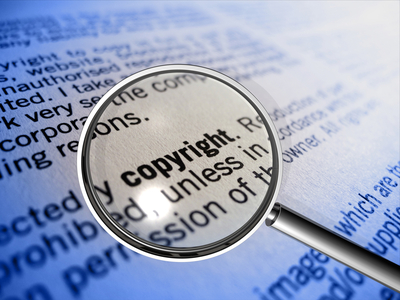Copyright Registration – Fact and Myth
Generally speaking, works published in the US before January 1st, 1978, were only protected by copyright if they were registered at or before publication. Under the current Act, all works are subject to copyright protection from the moment of their creation, regardless of registration.
Unfortunately, this change has made creators complacent about registration. Why register if the work is protected without registration?
Facts about Copyright Registration
The answer (on which I’ve elaborated further here) is that as a practical matter, unregistered works have only weak protection. If a registered work is infringed, its owner can sue for copyright infringement and is eligible to receive:
- Statutory damages
- Attorney’s fees
- Court and other litigation costs
The owner of an unregistered work will not receive any of these advantages, which are crucial in enforcing a copyright. Without them, most copyright infringement claims are economically worthless; a lawsuit will in most cases cost more than the damages the owner will likely receive.
Registration with the U.S. Copyright Office is simple, inexpensive, and is the only way to receive the benefits above. In addition, it is the best evidence that the registering creator actually did create the work and when.
Myths about Copyright Registration
For some reason, myths have long persisted that other avenues are not only available, but are almost as good as Copyright Office registration. Two of them are:
- Mailing the work to yourself in a sealed envelope
- Depositing the work with a private registry
Mailing the Work to Yourself
This practice, sometimes known as “Poor Man’s Copyright,” involves mailing a copy of the work to yourself in a sealed envelope. It might be the case that holding on to the postmarked sealed envelope could have some conceivable value as evidence of the date of creation. However, it has virtually no value as evidence that the sender is the creator. Even as evidence of the date of creation, it is subject to all kinds of attacks by a defendant:
- Has the envelope seal been tampered with?
- Has the postmark been forged or altered?
Then of course, there’s the practical reality that if the work is infringed, such infringement may occur years or decades after the work’s creation. During that time, in my experience, clients lose documents, which means even the weak evidence it might have provided is gone.
Depositing in a Private Registry
Another widely misunderstood practice is registration with a private organization, such as the Writers Guild of America (WGA), which maintains deposit registries on the east and west coasts. Other similar deposit options exist as well, but as evidence of authorship, they are no better than the “mail it to yourself” scheme and only marginally better as evidence of date of creation.
These registries generally keep copies of the work for a fixed period (WGA West, for example, holds copies for 5 years) in a secure file system for a fee (WGA West, charges the general public $20 per deposit). It’s not much cheaper than registration with the Copyright Office, provides none of the three advantages which Copyright registration carries, and (unlike Copyright registration) must be renewed every few years.
Private registries have value chiefly for deposit of works for which copyright registration is not available, generally because they are too condensed or insufficiently developed to do so. Private registries will provide some evidence of the date of creation in the event the creator has a dispute with someone using the ideas embodied in that work (so-called “idea submission” cases). The cost of registering with the copyright office, which gives you an almost absolute right is nominal. For the price, you get extremely valuable extra rights, and almost unassailable evidence of creation and authorship.
Have you registered your creative work with the Copyright Office? If not, do so now!
 Joshua Graubart
Joshua Graubart
646-781-9321
jggraubart@graubartlaw.com
www.graubartlaw.com

